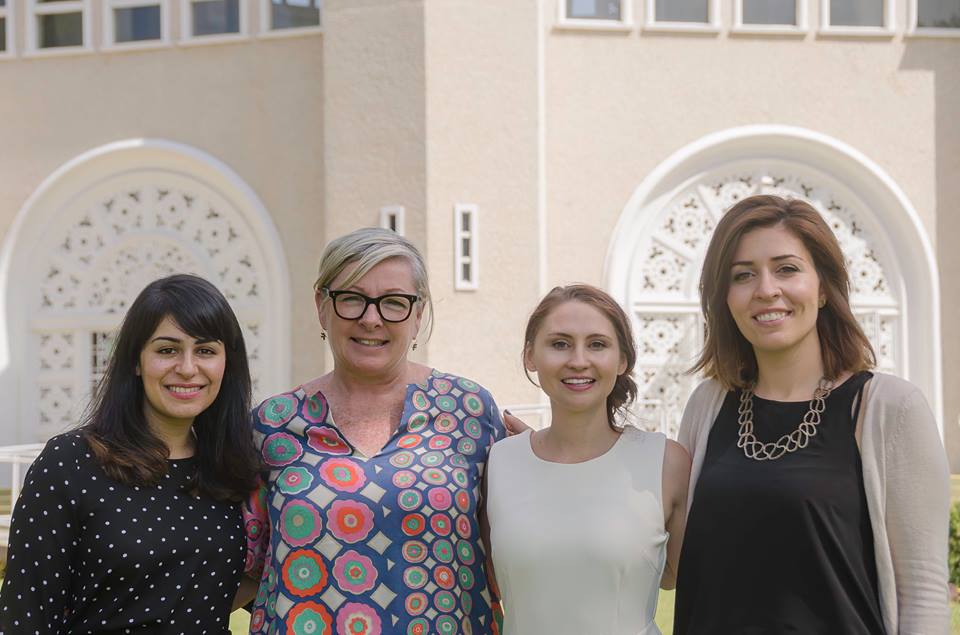
Two keynote speakers focused on the theme of women’s leadership when they addressed a reception following a service held at the Baha’i Temple in Sydney on 23 March to mark International Women’s Day.
Special guest readers at the service were Pittwater Mayor Jacqueline Townsend, Warringah councillor Vanessa Moskal, and Columban Mission Institute representative Ashleigh Green. Another guest was NSW Jewish Board of Deputies representative, Halina Robinson.
In her opening address at the reception, Cr Townsend remarked on the tendency of Australians, and other “lucky” countries in the West, to assume that issues pertaining to gender equality are mostly of relevance to third world countries.
However, she recommended taking the opportunity of International Women’s Day to reflect on the gaps in our own society.
Drawing upon the Baha’i scripture she had read in the Temple service, which said in part, “Strive then with heart and soul to distinguish yourselves by your deeds”, Cr Townsend said: “Let us not leave here today without striving, with our heart and soul, for all women to be equal, and to live in peace.”
The first of the two keynote speakers, Councillor Moskal said gender is often an arbitrary conception which can come down to cultural understandings.
“Cultural anthropological studies have shown that our thinking, moral judgements and personalities are not gendered even though we often think them to be,” Cr Moskal said.
After describing some grassroots initiatives undertaken in the area of gender equality, she stressed the importance of the support of the local community, a fundamental player in that area of development.
The second keynote speaker was Ms Safa Rahbar, the National Discourses Officer for the Australian Baha’i Community, who said that from a Baha’i perspective, the equality of women and men is more than just a goal that we all work towards— “it is an aspect of our reality”.
“This understanding has profound implications, because it means we aren’t trying to bring about something new– we are trying to bring about something which is already there,” Ms Rahbar said.
“We are trying to treat the symptoms of a world which has been misaligned with this fundamental reality.”
Ms Rahbar said the Baha’i vision of women’s empowerment needs to go beyond mere participation of women at grassroots, national and international levels.
“For the empowerment of women to take place, a change needs to take place in the hearts and minds of individuals, as well as the structures of society.
“In the long run, if we are to achieve gender equality, and to have this fundamental reality to be realised and applied in our society, both men and women will have to work together.”
The MC for the event, Mona Forghani, said that International Women’s Day is designated for 8 March, but the event was postponed so that it would fall after the Baha’i fast and the celebration of the Baha’i New Year holy day.
“Given that the equality of men and women is one of the fundamental principles of the Baha’i Faith, the Baha’i community supports the occasion of International Women’s Day as an opportunity to celebrate the advances made in the area of gender equality, and reflect on the journey ahead.”
Art by students in local Baha’i scripture classes, each work focussing on the theme of gender equality, was displayed for those attending the reception.
The service included readings from the sacred scriptures of the major religions of the world and a recital by the Baha’i Temple choir.
